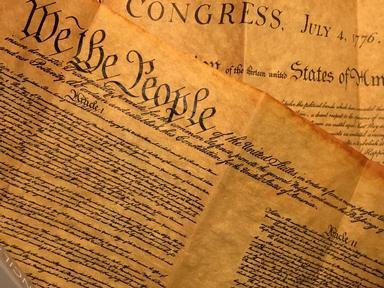Quiz Answer Key and Fun Facts
1. Which of these was the last group to gain the right to vote?
2. One amendment to the U. S. Constitution was repealed in 1933. What did the repealing of that amendment allow Americans to do again?
3. The death of Emmett Till is often cited as the beginning of the Civil Rights movement. Do you know where Emmett Till was from?
4. Another "movement" was launched in 1969 when Police raided a gay bar in New York, erroneously claiming a liquor license violation. The patrons fought back and went into the streets in protest of the habitual harassment by police. What was the name of the bar?
5. In the 1990 movie, "The Long Walk Home", Sissy Spacek and Whoopi Goldberg's characters are affected by the bus boycott that resulted from Rosa Parks' refusal to vacate her bus seat. In what city did that boycott start?
6. If she had wanted to, which one of these women could have run for US President in 2008?
7. Which of these are you allowed to be asked in a job interview?
8. What legal ramifications did Cracker Barrel restaurant suffer for firing a gay/lesbian chef in Florida in 1991?
9. Still controversial to this day, Roe vs. Wade was decided on January 22, 1973. By then, the plaintiff, who did not want to carry her child to term, had already given birth. What was her real name?
10. In the 1993 movie, "The Pelican Brief", Julia Roberts' character, Darby Shaw, discusses the Bowers vs. Hardwick case in her law class. The court ruled against the man who was arrested in his bedroom for his chosen activity. Darby disagrees with the Supreme Court ruling in that case. Since that movie was made, however, the ruling has been overturned.
Source: Author
InXanadu
This quiz was reviewed by FunTrivia editor
bloomsby before going online.
Any errors found in FunTrivia content are routinely corrected through our feedback system.


